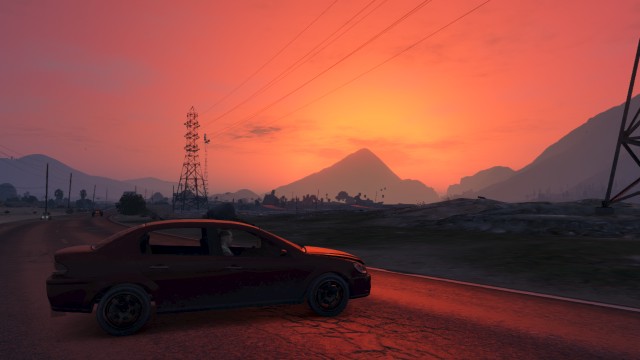Ryan Davis died last week. For people that aren't immersed in video game journalism culture, let's just say this: he wasn an entertainer. I'm someone who does more reading about games culture than actual game playing, and I have been pretty familiar with his work for the last 4 or so years. I primarily knew him as a really funny commentator, purposely abrasive, but completely charismatic. He died last week, 5 days after his wedding.
"Some day, someone will write the book on grieving in the age of social media," said his colleague Jeff Gerstmann the day after the news broke. He was aware of the weirdness of the situation, and how it was this strange confluence of celebrity, internet accessibility and the ease of emotional connectedness that the internet can develop when used correctly. Thousands of comments poured in, he got written up in Reuters, virtually every major games news site put up a tribute or fond anecdote. Complete strangers were reaching out to his widow and his father. You might expect this if it were James Gandolfini or some other mainstream media star, but to most people, in most circles, this was just a guy that worked at a website.
Whenever I think about the impact these subculture figureheads make, an impact that far exceeds what you would reasonably expect, my mind always recalls a line from Kieron Gillen & Jamie McKelvie's PHONOGRAM: "They're never going to be Big big. But they're going to be big to some people."
I was a fan of Ryan Davis and his website Giant Bomb, but I wasn't a dedicated fan. I didn't listen in every week or watch every video or read every article. I tuned in when I was bored and got 10 to 20 minutes of entertainment before convincing myself to do something productive. For a fan like me, there's a wealth of undiscovered Davis material in the archives that I can explore. I did, and it was like nothing had ever happened. I was laughing at jokes and learning about whatever they were talking about.
Superfans that ate up everything he put out felt his passing more acutely. His absence was marked in a lack of new content, the media stream would no longer produce things with his name on it. But because I had only known him and his life in a specific context -- video, audio, articles -- i'm capable of achieving a temporary amnesia. This context that I know about him hasn't gone away.
In that way, the internet, when used by producers and all-media creatives, has achieved Kurt Vonnegut's vision of death in SLAUGHTERHOUSE FIVE:
The most important thing I learned on Tralfamadore was that when a person dies he only appears to die. He is still very much alive in the past, so it is very silly for people to cry at his funeral. All moments, past, present and future, always have existed, always will exist. The Tralfamadorians can look at all the different moments just that way we can look at a stretch of the Rocky Mountains, for instance. They can see how permanent all the moments are, and they can look at any moment that interests them. It is just an illusion we have here on Earth that one moment follows another one, like beads on a string, and that once a moment is gone it is gone forever.
When a Tralfamadorian sees a corpse, all he thinks is that the dead person is in bad condition in the particular moment, but that the same person is just fine in plenty of other moments. Now, when I myself hear that somebody is dead, I simply shrug and say what the Tralfamadorians say about dead people, which is ‘So it goes.’
It's different from an Elliott Smith or a Heath Ledger passing. Their death marks their work, so that even if you got into their work post-mortem, the tragedy suddenly rears its head in everything they've done. It colors and flavors it. It's not so with Davis, partially because he worked in comedy, and it's hard to be reflect on death when you're laughing. But also because Davis was locked into multiple intimate online mediums: weekly, lengthy podcasts that were played in-your-ear and in-your-head, hundreds of quick bursts of video where he talks directly to the camera, conversational writing with clarity. These were one-on-one experiences, distributed online, to hundreds of thousands of people. They don't lose that potency even when the guy is gone.
I'm not attempting to make a grand statement like Davis will live forever, or that online we are all immortal. Just that the wonderful thing about today and now is that if you produce, if you make things and they're personal and true, it's the closest we can get to a kind of spacetime vision. We see life as a single point, but if we take a step to the side we can see that it stretches into the distance -- an elongated line, made up of many points.


